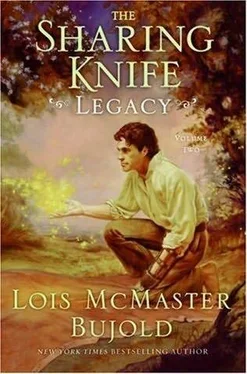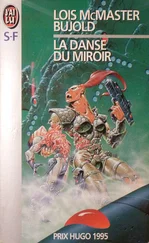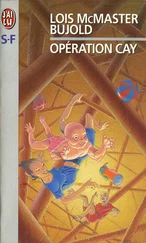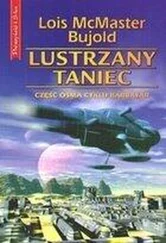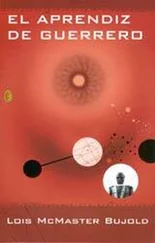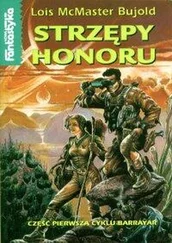Dag swallowed, and decided this was not the moment to explain the more arcane features of deep blight.
“I’m so sorry,” said Fawn softly.
The man shrugged. “Could have been worse. Daisy and Cooper over there, they found each other alive just an hour ago.” He nodded toward a man and one of the few women, who were both sitting on the tail of a wagon. Staring blankly, with their backs to each other.
Fawn’s little hand touched the man’s knee; he flinched. “And…why worse?” Fawn could ask such things; Dag would not have dared. He was glad she was here.
“Daisy, she’d thought Coop had their youngsters with him. Coop, he thought she’d had them with her. They’d had four.” He added after a moment, “We’re saving the children for last, see, in case more folks show up. To look.” Dag followed his glance to a line of stiff forms lying half-hidden in the distant weeds. Behind it, the men were starting to dig a trench. It was longer than the finished mound.
“Are the orphans being sheltered somewhere off the blight?” Fawn asked. Thinking absent-gods-knew-what; about someone brokering some bright arrangement to hook up the lost half families with one another, if he knew her.
The man glanced down at her. Likely she looked as young to him as she did to Dag, for he said more gently, “No orphans here, miss.”
“But…” She sucked on her lower lip, obviously thinking through the implication.
“We’ve found none alive here under twelve. Nor many over.”
Dag said quietly, as she looked up at him as if he could somehow fix this, “Next to pregnant women, children have the richest grounds for a malice building up to a molt. It goes for them first, preferentially. When Bonemarsh was evacuated, the young women would have grabbed up all the youngsters and run at once. The others following as they could, with what animals and supplies they could get at fast, with the off-duty patrollers as rear guard. The children would have been got out in the first quarter hour, and the whole camp in as little more. They did lose folks beyond the range of warning—some of those makers we freed from the groundlock had stayed to try and reach a party of youngsters who’d gone out gathering that day.”
Fawn frowned. “I hadn’t heard that part of the tale. Did they find them in time?”
Dag sighed. “No. Some of the Bonemarsh folk who came back later recovered the bodies, finally. For a burial not so different than this.” He nodded toward the mounds; the townsman, listening, stared down and dug his boot heel into the dry soil, brows pinching in wonder. Yes, thought Dag. Witness her. Farmers can ask, and be answered. Won’t you try us?
“Did they take their—” Fawn shut up abruptly, remembering not to ask about knife-bones in front of farmers, Dag guessed. She just shook her head.
The townsman gave Dag a sidelong look. “You’re not from Bonemarsh. Are you.”
“No. My company rode over from Oleana to help out. We’re on our way home now.”
“Dag’s patrol killed your blight bogle,” Fawn put in, a little proudly. “When the malice’s—bogle’s curse lifted from your mind, that was when.”
“Huh,” said the man. And then, after a bleak silence, “Could have been sooner.”
Stung to brusqueness, Dag said, “If any of you had owned the wits to run and give warning at the first, it could have been a lot sooner. We did all we could with what we had, as soon as we knew.”
A stubborn silence stretched between them. There was too much grief and strain here, thick as mire, for argument or apology today. Dag had pretty much pieced together the picture he’d come for. It was maybe time to go.
A trio of townsmen came out of the barren woods, back from some errand there—pissing, searching? — and stopped to gape at the newcomers. One grizzled head came up sharply; staring, the man began to walk toward the fallen tree, faster and faster. His stride turned into a jog, then a run; his face grew wild, and he waved frantically, crying, “Sassy! Sassy!”
Dag stiffened, his hand drifting to his knife haft. The townsman beside Fawn straightened up with a moan and held out his palm in a gesture of negation, shaking his head. The runner slowed as he neared, gasping for breath, rubbing his red-rimmed eyes and peering at Fawn. In a voice gone gray, he said, “You aren’t my Sassy.”
“No, sir,” said Fawn, looking up apologetically. “I’m Dag’s Fawn.”
He continued to peer. “Are you one of ours? Did those patrollers bring you back?” He waved toward the Lakewalkers still standing warily with their horses. “We can try and find your folks…”
“No, sir, I’m from Oleana.”
“Why are you with them?”
“I’m married to one.”
Taken aback, the man turned his head to squint; his gaze narrowed on Saun, who was standing holding Copperhead’s reins, watching them alertly. The man’s mouth turned down in a scowl. “If that’s what that boy told you, missie, I’m afraid he was lying.”
“He’s not—” She broke off as Dag covered and squeezed her hand in warning.
The grizzled man took a breath. “If you want to stay here, missie, we could find you, find you…” He trailed off, looking around dolefully.
“Shelter?” muttered his comrade. “Not hardly.” He stood up and squeezed his friend’s shoulder. “Give it over. She’s not our business. Not today.”
With a disappointed glance over his shoulder, the grizzled man dragged off.
“I hope he finds his Sassy,” said Fawn. “Who was—is she? His daughter?”
“Granddaughter,” replied the townsman.
“Ah.”
“We need to get off this blight, Fawn,” said Dag, wondering if, had it been some other day, the townsmen would have made Fawn their business. Disquieting thought, but the dangerous moment, if that had been one, was past.
“Oh, of course.” She jumped up at once. “You’ve got to be feeling it. How’s your leg doing?”
“It’ll be well enough once I’m in the saddle again.” He grounded the butt of the hickory stick and levered himself up. He was starting to ache all over, like a fever. The townsman trailed along after them as Dag hobbled back to his horse.
It took Saun and Varleen both to heave Dag aboard Copperhead, this time. He settled with a sigh, and even let Saun find his left stirrup for him and take away his stick. Varleen gave Fawn a neat boost up on Grace, and Fawn smiled thanks.
“You ready, Dag?” Saun asked, patting the leg.
“As I’ll ever be,” Dag responded.
As Saun went around to his horse, the townsman’s eyebrows rose. “You’re her Dag?” Surprise and deep disapproval edged his voice.
“Yes,” said Dag. They stared mutely at each other. Dag started to add, “Next time, don’t—” but then broke off. This was not the hour, the place, or the man. So when, where, and who will be?
The townsman’s lips tightened. “I doubt you and I have anything much to say to each other, patroller.”
“Likely not.” Dag raised his hand to his temple and clucked to urge Copperhead forward.
Fawn wheeled Grace around. Dag was afraid she’d caught the darker undercurrents after all, because the struggle was plain in her face between respect for bereavement and a goaded anger. She leaned down, and growled at the townsman, “You might try thank you. Somebody should say it, at least once before the end of the world.”
Disconcerted, the townsman dropped his eyes before her hot frown, then looked after her with an unsettled expression on his face.
As they left the blighted town and struck east up a wagon road alongside the river, Mari asked dryly, “Satisfied with your look-see, Dag?”
He grunted in response.
Her voice softened. “You can’t fix everything in the whole wide green world by yourself, you know.”
Читать дальше
